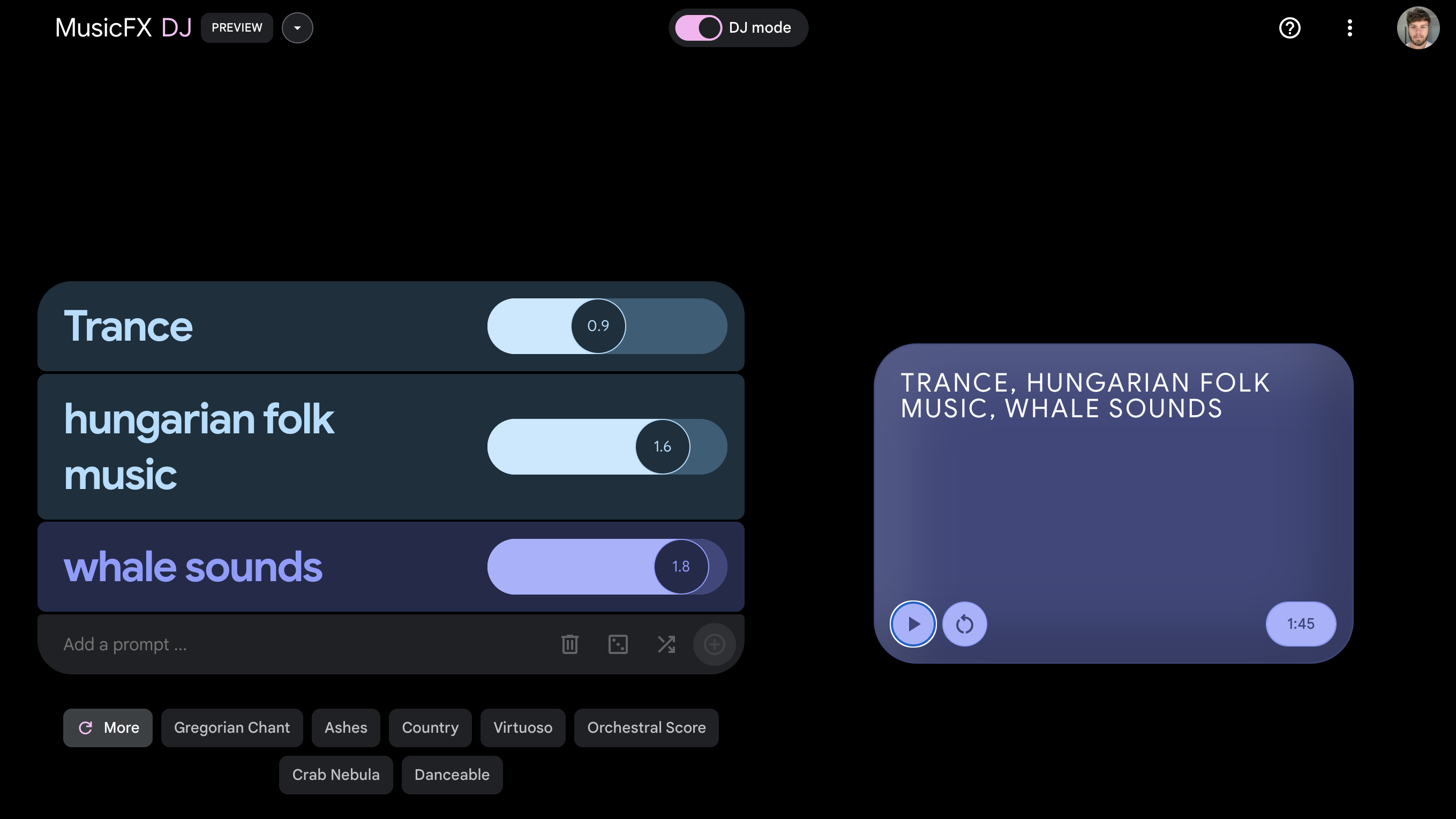
Google has launched an update to its generative text-to-music AI MusicFX that lets you layer and mix music generated by multiple text prompts together in a single evolving composition.
Launched last year, MusicFX (originally named MusicLM) is capable of generating sounds, musical ideas and even entire tracks on demand in response to detailed instructions. The AI can understand prompts relating to genre, mood and instrumentation, it can account for the experience level of the 'musician' it's imitating, and it can generate music that's suitable for a specific context, like working out or studying.
Google's latest update is a DJ mode that adds a mixer-style interface to the platform. As you type in multiple prompts, MusicFX DJ will layer them together in a single composition, syncing each track like a DJ.
You're able to adjust the intensity of each layer using the sliders on the interface and add up to ten layers of music to your composition. The dice icon beneath the mixer will generate a random prompt and the shuffle button will randomize the levels of each layer. Unlike the regular version of MusicFX, there's no option to export the results.
Google DeepMind's Adam Roberts shared the news this week on Twitter/X, commenting: "I love music most when it’s live, in the moment, and expressing something personal. This is why I’m psyched about the new “DJ mode” we developed for MusicFX. It’s an infinite AI jam that you control.
"We’re working on lots more features to unlock your creativity, so stay tuned!"
"Try mixing your unique of instruments, genres, or favorite foods--whatever your desires. Hone your skills as a prompt DJ to create a smooth, consistent set. I’ve been having a blast learning to express my own musical ideas with this unique instrument, and I’m stoked to see how others use it! We’re working on lots more features to unlock your creativity, so stay tuned!"
While we don't think that Ableton should be worried just yet, MusicFX DJ pushes AI-powered music generators like these closer to the realm of the DAW by giving you more control over the mixing and editing of multiple parts, rather than simply spitting out audio clips on demand.
Advancements like these point towards a future where AI-powered music software will be able to generate melodies, chords and timbres, create arrangements, edit samples, apply effects and even mix and master entire tracks, all in response to instructions delivered by text or speech. Whether that's a good thing or not, we'll leave you to decide.







